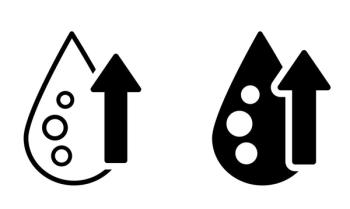
Heritable Ischemic Stroke More Common in Women
OXFORD, England -- More women than men inherit a propensity for ischemic stroke, irrespective of traditional vascular risk factors, researchers here found.
OXFORD, England, Dec. 22 -- More women than men inherit a propensity for ischemic stroke, irrespective of traditional vascular risk factors, researchers here found.
Women who have had a stroke or a transient ischemic attack were more likely than men to have a history of stroke in mothers than in fathers and in sisters than in brothers, according to a report published online in the Dec. 22 issue of Lancet Neurology.
In addition, the age at stroke in patients and affected siblings correlated with the age at stroke of a mother but not a father, said Peter Rothwell, M.D., and Emmanuel Touz, M.D., of the Radcliffe Infirmary here.
The findings emerged from a study of strokes in mother, father, and other first-degree relatives of men and women with ischemic stroke or TIA in the population-based Oxford Vascular Study (OXVASC). The OXVASC study assessed all incident or recurrent TIAs and strokes among 91,106 patients registered with 63 family physicians in Oxfordshire in England.
The study included 806 patients (423 women, 383 men). Compared with the men, the women were older, were slightly more likely to have had a TIA as a qualifying event, and were more likely to have a history of hypertension, to be a lifetime non-smoker, and to have had high mean cholesterol concentrations, the researchers reported.
The study's findings were independent of traditional risk factors and stroke subtype and were:
Women were more likely than men to have at least one affected first-degree relative (146/423 women versus 104/383 men; OR 1.4, 95% CI 1.1-2.0, P=0.02), due entirely to an excess of affected female relatives of female participants (female relative versus male relative OR=1.7, 1.3 to 2.4, P= 0.0004).
Maternal stroke was almost twice as common as paternal stroke in the parents of women subjects (OR =1.8, CI 1.2-2.7, P=0.001), but not so for men (OR= 1.1, CI 0.7-1.7, P=1.7).
Female participants were three times more likely than men to have an affected sister (OR= 3.1, CI 1.5-6.7, P=0.004) but not an affected brother (OR 1.1, CI 0.6-2.1, P= 0.80).
Age of first stroke also correlated within families among affected women but not affected men, such that the excess of affected female relatives of female subjects was greatest when the age difference at the first stroke was less than five years (OR=3.7, CI 1.6-8.6, P= 0.0007). The relationship declined as the age difference increased (P for trend=0.004).
These findings were confirmed in two independent data sets, which showed an excess maternal history of strokes in female participants (OR=2.3, CI 1.5-3.8, P
Newsletter
Enhance your clinical practice with the Patient Care newsletter, offering the latest evidence-based guidelines, diagnostic insights, and treatment strategies for primary care physicians.

































































































































